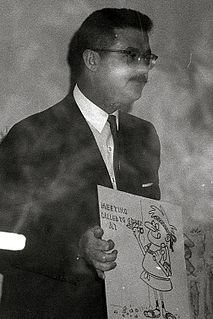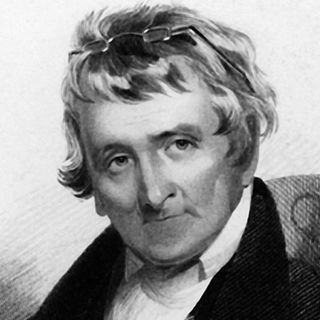A Quote by Wendell Berry
Whether we and our politicians know it or not, Nature is party to all our deals and decisions, and she has more votes, a longer memory, and a sterner sense of justice than we do.
Related Quotes
I can't predict if I will see a woman president, but I think I may well because, again, Hillary Clinton got more votes probably than any other Democratic candidate ever, except for Obama. But she got more votes than Trump and she got more votes than Richard Nixon got when he won the election, more votes than John Kennedy got when he won.
If any one faculty of our nature may be called more wonderful than the rest, I do think it is memory. There seems something more speakingly incomprehensible in the powers, the failures, the inequalities of memory, than in any other of our intelligences. The memory is sometimes so retentive, so serviceable, so obedient; at others, so bewildered and so weak; and at others again, so tyrannic, so beyond control! We are, to be sure, a miracle every way; but our powers of recollecting and of forgetting do seem peculiarly past finding out.
It is more than twenty years since we left the city. This is a serious chunk of time, longer than the years we spent living there. Yet we still think of Jerusalem as our home. Not home in the sense of the place that you conduct your daily life or constantly return to. In fact, Jerusalem is our home almost against our wills. It is our home because it defines us, whether we like it or not.
When women hear those words, an old, old memory is stirred and brought back to life. The memory is of our absolute, undeniable, and irrevocable kinship with the wild feminine, a relationship which may have become ghostly from neglect, buried by over-domestication, outlawed by the surrounding culture, or no longer understood anymore. We may have forgotten her names, we may not answer when she calls ours, but in our bones we know her, we yearn toward her, we know she belongs to us and we to her.
At least with [Hillary] Clinton, you know, there was some degree of transparency. There was some sense of what's going on here, and a lot to be very alarmed about, whether it's the - you know, the Prince Bandar and, you know, the princes of Saudi Arabia, or Bahrain, or the Russians that she enabled to acquire 20 percent of our uranium supply. I mean, really outrageous stuff. The arms deals, et., a lot of grave concern.
I have a hunch that our obsession with photography arises from an unspoken pessimism; it is our nature to believe the good things will not last. . . But photos provide a false sense of security> like our flawed memory, they are guaranteed to fade. . . . We take photographs in order to remember, but it is in the nature of a photograph to forget (pg 157)
In reviewing the most mysterious doctrines of revelation, the ultimate appeal is to reason, not to determine whether she could have discovered these truths; not to declare whether, considered in themselves, they appear probable; but to decide whether it is not more reasonable to believe what God speaks than to confide in our own crude and feeble conceptions. No doctrine can be a proper object of our faith, which is not more reasonable to believe than to reject.





































